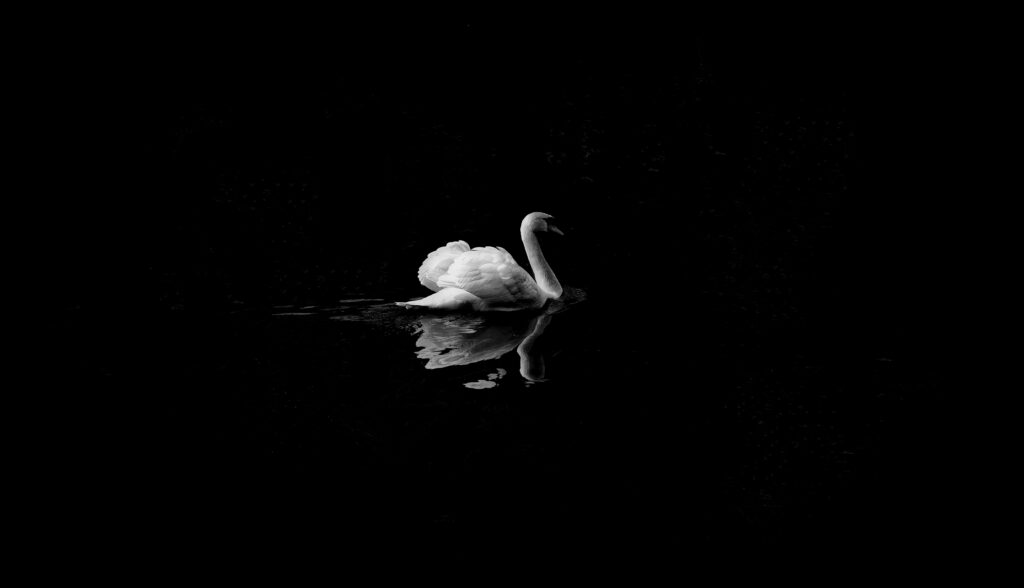
A Q&A with crime novelist Samantha Turner who discusses her book The Burning Truth, a gripping drama surrounding the discovery of a body in a locked, burning canal boat – the latest instalment in the Lizzie Holland crime series. What first inspired you to write The Burning Truth? The Burning Truth carries on the back story started in my first two novels, The Devil You Know & The Depths Of Murder which follow the protagonist, Lizzie Holland and the tragedies that befall her. The inspiration for the novel came from wanting to provide answers to the ongoing mystery as well as highlighting the struggle between Lizzie’s crucial role as a DI and her turbulent personal life. I have a close relationship with the canal as I can see the towpath and water from my patio. Seeing the array of colourful (in appearance and name) of the various barges sailing by and the houseboats that are permanently moored here, the story for The Burning Truth began to form in my imagination. Combined with the location of my local pub and other areas I have visited plus, a sprinkling of artistic licence the novel was brought to life. Themes of gender and violence pervade the novel. What inspired this decision? I find this question a little difficult to answer as I didn’t begin with this intention; I never do! The story develops a life of its own as I hit the keys. However, I am a writer of crime thrillers so my readers do expect some level of violence. As for gender, again I didn’t give it much thought. Violent crime can happen to anyone, and yes, we seem to hear more on the news about violence against women, but I feel we shouldn’t discount the risk to men. Whatever our gender, high-risk lifestyles, deciding to take that shortcut down the dark alleyway, or just being in the wrong place at the wrong time all have the chance of ending in tragedy. How would you introduce Lizzie Holland to your readers? The Lizzie Holland we see now is quite changed to the despondent, negative woman from book one. Lizzie is a fiercely strong and independent Detective Inspector, at almost fifty years old she has only been part of The Lancashire Constabulary for ten years. Solving violent murders, rapes and other vicious incidents in the Major Crime Unit is her new purpose for living. Sometimes her need for justice can give way to vengeance if she allows her temper and past experiences to overcome her judgement. In her spare time, the once unfit and overweight Lizzie likes to run, practice self-defence and drink lots of strong coffee. She is also an avid animal lover and vegan. What research did you do in the writing process? I am fortunate to have an acquaintance who owns a canal barge and one who lived on a boat for many years. My other friend is an ex-police officer. I am afraid to say I bombarded them all with questions and I had the opportunity to view the barge in person which gave me a good insight into the layout etc. I also spoke with my local fire brigade and used my past career as a pharmacy technician for accuracy. While some of the locations in the book are based on real places which I visited I have invented certain names, pubs, and landmarks for the good of the story. What do you hope readers will take away from this novel? Firstly, I hope readers will thoroughly enjoy the novel. I also wish for readers to invest in Lizzie Holland, to care about what happens to her and to walk by her side. If the novel stirs emotions, creates suspense and instils fear then I have done my job. However, I have added a touch of humour for light relief. The novel hits on controversial topics, I hope readers aren’t offended by this and understand that as authors we have to portray all opinions, even if they seem cruel or out of date. The Burning Truth by Samantha Turner is published by Foreshore in the spring in paperback. SAMANTHA TURNER is an English crime writer, novelist and poet. She is the creator of the Lizzie Holland series and author of The Devil You Know and The Depths of Murder – the first two Lizzie Holland crime novels.

People’s Book Prize Award winner finalist Dr Sarah Hussain takes questions from Foreshore Book Club Members across the UK. I know you were at Huddersfield University, so did this novel start there, or pre-date that time, and can you remember what the seed of this was, as a novel? HENRY, London Yes, the novel was inspired by my PhD research. I came across the amazing hill women of the Himalayas who protested to protect the trees. Having come across so many stereotypical depictions of South Asian women, I knew the best way to challenge such negative representations was to write a novel and pay homage to these unsung female activists. I was inspired by their non-violent activism and new I had to tell this story. What is the role of isolation in your creative process? IH, Birmingham I am inspired by nature. Going for walks alone helps my writing come alive. Before writing the trek section of my novel, I would go on regular walks in the woods, using my phone to record my thoughts; I would make note of the small details in relation to sight, scent and sound. When you had completed your novella Escaped from Syria, did you know at that point that you would be writing Vidhya’s story in your next novel? YF, London No. I knew I wanted to write about British/Indian connections from a postcolonial perspective, but I was inspired to write Vidhya’s story when I learnt about environmental colonialism and the hill women’s contribution to India’s independent struggle. I love how the novel manages to explore its socio-economic and political context while avoiding judgement or easy conclusions, even though it’s written from Vidhya’s point of view. Was this a hard thing to balance? EB, London Yes, it was difficult. Initially I was so engrossed in my research that I had to be really careful not to just info drop. I had to remind myself that this was a story that required me to draw on the real life lived experience of the indigenous people. There are already academic books written about the colonial period in India, but I struggled to find fiction written about the British Raj era from the native Indian’s woman’s perspective. My intention was to try and create a plausible setting that would paint a picture of the real-world Vidhya lived in, so this meant focusing on her experience within the socio-economic, political and environmental context. How did you go about creating and inhabiting an Indian teenager (Vidhya )from a different century, giving her such truth and feminist autonomy? GEMMA, Christchurch, Dorset I know it’s a different century, but as a South Asian woman, I understand what it means to grow up within that culture. My South Asian heritage means a great deal to me. Although I am British born, I hold on firmly to my ancestral values, thus I felt creating Vidhya was a very natural process. It might sound unusual, but once her character was born, I felt as though she guided me, more than her being my creation. Writers create literature, shape it, but how to be unique in that art of creating some new styles of historic fiction writing? DARLENE, Brighton My PhD research was about contributing to new knowledge, thus my intention to challenge romanticized depictions of South Asian women was a new contribution to English fiction within the British Raj era. I think the way to be unique is to write a story that challenges what people think they know about a historical period. In terms of style, I believe each writer develops their own voice that has its own unique style. I have often been advised to take inspiration from other great writers which is good advice, but it’s also great to take risks. I myself prefer a plot driven novel and I’m not a fan of purple prose, but a lot of novels I read which were set in that part of the subcontinent were heavy in description. I wondered whether I needed to conform to that style of writing, however it didn’t work for me. I wanted to write a historical novel that made readers want to turn the page and find out what will happen next, as well as learning about a period in history that they never knew about. I hope I have achieved that. Is there a book by another author that you would love to have written yourself and, if so, which and why? VERONICA, Belfast I believe every individual has their own voice, so I wouldn’t want to have written any other story that I wasn’t inspired to write myself, but I have certainly enjoyed other fiction. My love for fiction began when I read Alice Walker’s, The Colour Purple. Walker created a plausible setting that took me on an emotional journey and the best books for me are the ones that move you and make you question the world. Which do you find most challenging writing a thesis or a novel? BRIANNA, Conway The novel by far was the most challenging. I discovered this new knowledge and was eager to complete my exegesis, thus writing down my ideas including source support was not that difficult for me, especially since I have taught Academic English skills. However the novel was like building a house from scratch; getting the structure in place, before decorating and adding the final touches. I had to get the plot right within a specific historical time frame, which took some redrafting, whilst ensuring there weren’t any anachronisms. Once I managed to create a plausible plot, then I had to consider writing style and this meant word level editing, which is a lot more strenuous than writing an academic thesis in my opinion. Creating Writing is very technical and writing a historical fiction novel was most certainly a challenge, but I am very proud of taking on that challenge and writing a novel that contributes to new knowledge. BUY THE BOOK A powerful

Kirsty McKenna discusses her book The Dying Swan, and the line between real and imagined places in her work. The Dying Swan, a gripping drama surrounding the hunt for an elusive killer known for trademark ritualistic burials, dramatises not just how girls or women are victim to sexual abuse and its shattering impact, but the normalisation of inappropriate sexual attention. McKenna’s novel also provides a backdrop gleaned from real life experiences. “I thought of Tess as a child kidnap victim due to one of my childhood memories and an extremely near miss,” the author explains. “I was about seven and had walked to the local shop to buy something and as always, my dog Rags followed me. Rags was a stray that my parents had taken in and our bond was so close. He was a black raggy looking dog. “I crossed the quiet road to get tom the shop and as I got to the other side a car pulled up. A man with very dark hair and a beard asked me to come over to the car, I was apprehensive as adults always tell their children not to approach strangers but when an adult like the man asks a child to do something they do it. The man said he had some sweets for me so I headed for the car, as I got closer my dog lunged in between myself and the car growling at the man and foaming at the mouth, my dog simply would not let me pass. The man quickly drove off as Rags was trying to get him through the window.” Though her storytelling in The Dying Swan may be fictitious, McKenna packs it with chilling realism. The author grew up amid a serial killer Peter Sutcliffe, aka The Yorkshire Ripper who killed 13 women and attacked at least eight more between October 1975 and November 1980. “He lived just across the valley in neighbouring Frizinghall,” McKenna said. “The tension at that time was awful. Women had to be chaperoned everywhere for their own safety. My mum worked at the local picture house and dad would walk to meet her, so she was safe. “The man who tried to entice me into his car that day looked awfully like Peter Sutcliffe. I know he attacked adult women and not children, but you never know.” Born in Shipley, West Yorkshire, to a Glaswegian father who was a builder and a Yorkshire mum who was a housewife, McKenna worked in casinos most of her life. During her early thirties, she studied law, gaining a law degree. Ten years ago, she followed the calling of her Celtic roots and moved first to Glasgow, then settling in Argyll and Bute near the town of Dunoon. She started studying archaeological research as she was always interested in what lies beneath her feet, becoming “obsessed” with a module titled Death and Burial, which focuses on ancient ritual burials. “I passed with a postgraduate diploma but realised I didn’t like academic writing, although I thrived writing theoretically,” McKenna recalls. “When I studied archaeology, I became fascinated with ancient burials and skeletal remains, I knew a little about osteo archaeology and so my character Dr Tess O’Brien was created. Her beauty and vulnerability are based on an article I read about Picassos muse The Girl with The Ponytail, Sylvette David. In her interview she spoke about the downfalls of being so beautiful and those were negative attention and childhood abuse. Tess’s looks are based on Sylvette, someone so stunning that all genders stop and stare. I also wanted Tess to have suffered trauma, she is not a victim but a fighter.” In McKenna’s beautifully written and painstakingly researched The Dying Swan, the protagonist Dr Tess O’Brien flees to Scotland following a painful breakup, seeking refuge in Glasgow University’s archaeological department. Haunted by the trauma of her teenage kidnapping, she is drawn into a chilling investigation of murders and war crimes worldwide, uncovering disturbing parallels to her past. “I have a good friend Lucy Rose who was an archaeologist and she being exceptionally beautiful and blond also inspired my character,” McKenna said. “Tess is kind, funny and a good friend who is also extremely intelligent, I want people to like her, to aspire to be her, when she is sad, angry, happy, or scared I want people to feel it. She loves hard so when she falls in love it is all consuming and she has a trusting nature in some respects. “Tess is obsessed with bones, this might seem macabre to some but to her this is where she feels most comfortable, she also feels compassion and empathy for the victims she excavates, knowing full well that could have been her as a thirteen-year-old victim of sexual predators. “In the writing I also look at how girls or women are victim to sexual abuse, comments, assault. I wanted to show how most women at some point in their lives have been victims to inappropriate sexual attention so much so it can seem normal. I wanted Tess to highlight this.” Kirsty McKenna’s The Dying Swan will be out in paperback in the Spring. – the first novel in the Dr Tess O’Brien crime series. Image : DAVID COHEN on Unsplash



